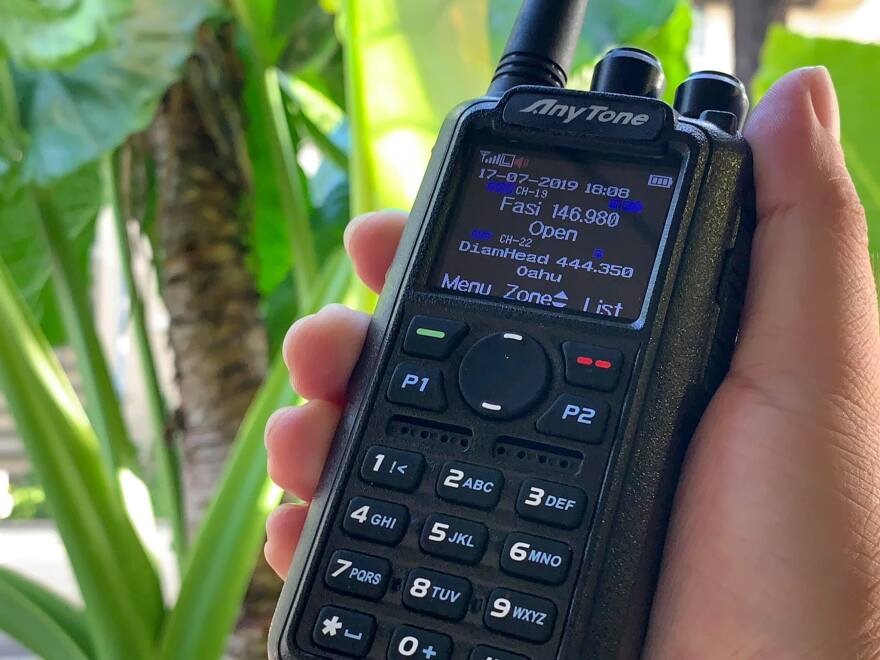The islandwide police chase of an armed suspect on Oʻahu on New Year’s Day has prompted calls to the City and County of Honolulu to give the public more access to first responders’ radio communications.
Two years ago, the city encrypted dispatcher radio transmissions between first responders. Local news outlets and the public lost access to real-time communications between the island’s police, firefighters and emergency medical personnel.
Some have argued that it’s compromised public safety and isn’t consistent with government transparency.
The New Year’s Day manhunt that took place across the island for about nine hours was the most recent argument for that case.
It ended in a shootout near the University of Hawaiʻi at Mānoa that killed Sidney Tafokitau, who was armed with a high-powered rifle during the pursuit, and injured two officers.
Tafokitau had a long history of gun-related convictions. He had just been accused of shooting a woman and carjacking another at gunpoint.
“Had I or my family had timely or accurate information — I have two young kids, my daughter’s home from college — I would’ve called them and told them to come home or shelter in place, or my in-laws, who may have been outside walking, to go indoors,” said Honolulu City Council Chair Tommy Waters at a recent council meeting.
The Honolulu Police Department released little information during the police chase, leading to public confusion about what to do. Social media posts along with first responder emails and spreadsheets were all the information local news outlets and the public could access.
Days later, Waters introduced a resolution urging the city to improve the public’s access to first responder radio transmissions.
But Police Chief Joe Logan said more access to those communications puts confidential or sensitive information at risk. That includes information about victims or tactical information about police whereabouts.
Logan said HPD will allocate more staff to post emergency alerts on the department’s social media accounts.
“We believe that these changes will address the public’s need to be informed in a timely manner as well as the need to protect the sensitive information about our victims, witnesses, juveniles and our officers,” he told the council.
Leadership from the Honolulu Fire Department and the Honolulu Emergency Services Department were at the meeting and shared similar concerns about the release of information.
But representatives from the Honolulu Star-Advertiser and Hawaiʻi News Now testified against those concerns and said that first responders already had private channels they could use if they needed to share sensitive information.
HNN journalist Daryl Huff said the problem has been non-existent.
“Personal information — that's such a red herring. It’s just not true. It is not a risk. … The only time I have ever heard, in 40 years, protected personal information going out over a scanner, was for either an APB on a dangerous suspect that they were looking for across the island, or a missing child,” he told the council.
The news outlets say encrypted radio transmissions, meanwhile, have already led to delayed and incorrect information released to the public about several emergencies.
The city council moved along a version of the resolution this week.







